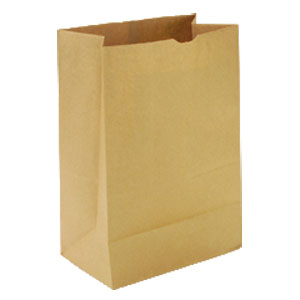20 July 2010
Gan Pei Ling
“IT’s not sexy, that’s why nobody cares,” a friend comments on why few Malaysians are concerned about the problem of plastic waste even though it threatens the environment that sustains us. “It’s sexier to talk about renewable energy and green buildings than how we handle our trash,” the friend adds.
That is until some of our state and local governments took the initiative to launch No Plastic Bag Day campaigns. Penang was the first to launch the campaign in July 2009. Those without reusable bags have to pay 20 sen for a plastic bag when they shop on Mondays. In January 2010, the campaign was extended to include Tuesdays and Wednesdays. At the same time, Selangor launched its own No Plastic Bag Day campaign on Saturdays. Subsequently, the Miri and Sibu municipal councils in Sarawak, as well as Kota Kinabalu city hall and six other districts in Sabah announced similar campaigns.
How effective are these campaigns? Can they really help save the planet? And what can be done to make these campaigns more popular?
Campaigns’ effectiveness
The idea of banning plastic bags to reduce its use is not new. In 2002, Ireland imposed a 15 euro cent tax on plastic bags, and its use dropped over 90% within five months. In the same year, Bangladesh banned polyethylene bags in Dhaka as the bags were choking the drainage system and causing floods in the capital.
China banned plastic bags in 2008. A year later, it was reported that the country saved the equivalent of 1.6 million tonnes of oil and 40 billion bags. Other countries that have introduced additional charges or tax on plastic bags include Rwanda, Eritrea and Switzerland.
In Selangor, the use of plastic bags was reduced by five million in the first four months of its campaign. In Penang, the amount was one million bags over the same period.

(Pic by roberto / sxc.hu)
Despite such reductions in plastic bag use, Ireland’s scheme has been criticised for triggering a 400% increase in the purchase of bin liners and greater reliance on paper bags. Contrary to the popular belief that paper bags are more eco-friendly, they actually require more energy to manufacture and cause more pollution during production. This probably explains why Penang and Selangor did not compel or encourage retailers to replace plastic with paper bags.
Convincing the public
Asking consumers to sacrifice requires some doing, especially when Malaysians are so used to free plastic bags that some consumers mistake it as a “right”. Some consumer associations, for example, claimed that the 20 sen charge was decided without their consultation and was therefore unfair.
Perhaps as a public relations measure to help consumers make the switch, Penang Chief Minister Lim Guan Eng announced that the state would use the funds collected from the plastic bag charges to eradicate hardcore poverty.
In Selangor, participating retailers are required to use the funds to conduct corporate social responsibility programmes. The Selangor government encourages these retailers to conduct programmes relating to the environment.
Perhaps one other way to compel consumers to change their lifestyle is to lead them to the Pacific Garbage Patch that stretches several hundred miles in the Pacific Ocean. The Pacific Garbage Patch is the largest of five plastic garbage patches in our oceans. For now, there is no way to clean up these garbage patches, scientists say.
As a result of our consumption and disposal of plastic, scientists estimate there are six times more plastic than plankton in the “continent”. Trapped by circulating ocean currents, the plastic we throw away are choking fishes and seabirds to death as the marine animals mistake them for food. Every year, more than 100,000 marine animals such as dolphins, whales and sea turtles are killed because of plastic bags.

Plastic waste found on the beach in Kuantan (Pic by Carolyn Lau and Ng Sek San)
If we don’t care about marine life, here’s another thought that should give us pause. Plastics absorb pollutants like polychlorinated biphenyls, otherwise known as cancer-causing PCBs, and pesticides.
“These particles are ingested by marine life and pass into our food chain. We all do it: we throw this stuff, this packaging, what I call dumb plastic, into the bin, and we think it has gone. But it comes back to us one way or another. Some of it ends up on our dinner plates,” British adventurer and environmentalist David de Rothschild tells The Guardian.
In 2009, Rothschild sailed to the patch in a vessel made entirely of plastics called Plastiki. The billionaire banking heir has definitely found a way to make the issue of plastic waste seem sexier.
Considering some of the gruesome facts surrounding plastic bags pollution, 20 sen per bag is a really small price to pay.
Other solutions
The Malaysian Plastic Manufacturers Association has proposed to the Penang government to give out free oxo-biodegradable plastic bags so that consumers can still enjoy free plastic bags on campaign days.
However, oxo-biodegradable plastic bags are not 100% degradable. They can only degrade in the presence of sunlight and oxygen. Those that end up in landfills would not degrade at all. Therefore, reusable bags are still the best option.
For certain, most of our plastic waste comes from packaging that is often unnecessary. Malaysian consumers cannot hope to rely solely on governments to resolve our plastic waste problem. After all, in a marketplace driven by profit, consumer demand and lifestyle are often much more powerful than government regulations.
As Leo Hickman writes in The Guardian on 11 Aug 2009: “[Plastic bags] are the ultimate symbol of our throwaway culture.”
No Plastic Bag Day campaigns are merely the first step towards stimulating the public to rethink the impact of our “use and throw” habit on the very environment that sustains us. ![]()


No comments:
Post a Comment